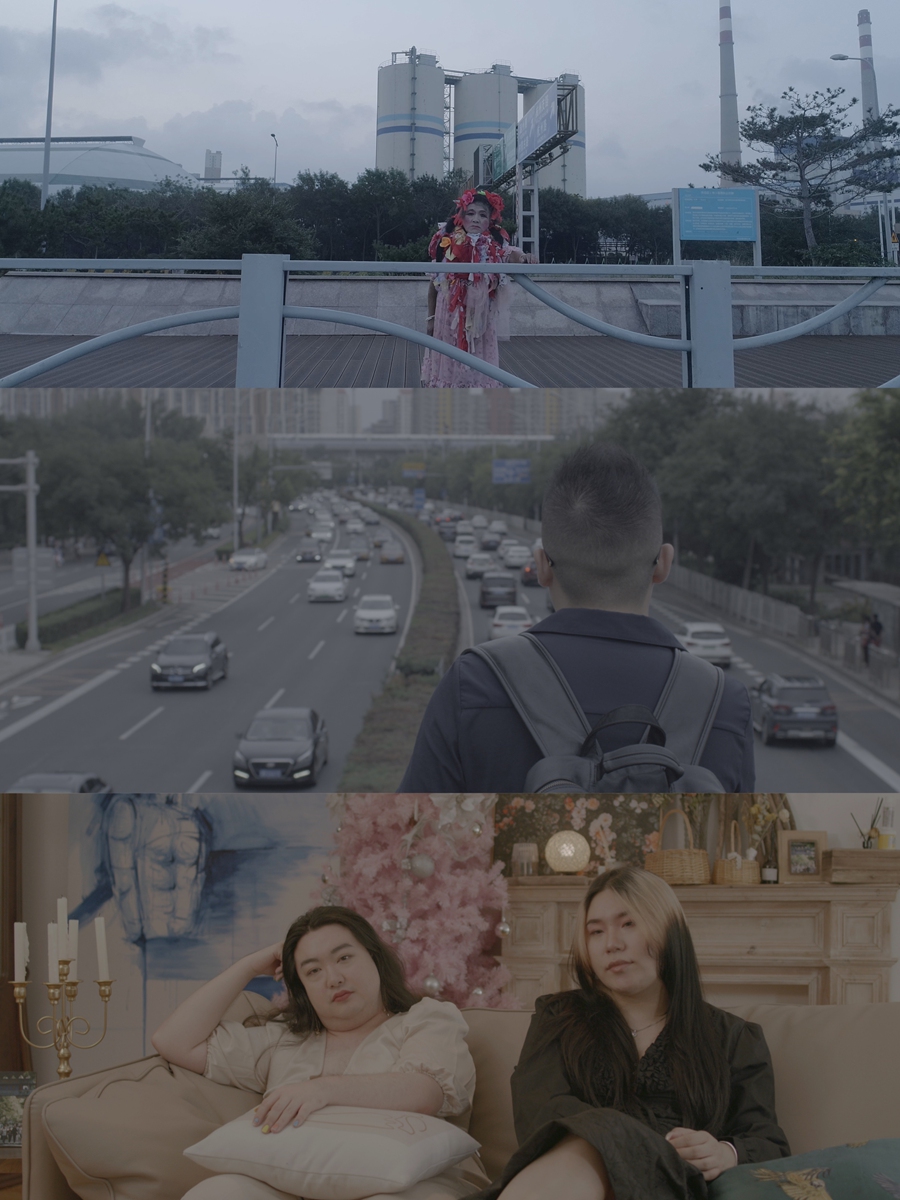ARTS / FILM
New documentary 'A Day of Trans' explores experiences of three generations of Chinese transgender persons

Transgender individuals in the documentary movie Photo: Courtesy of the production team
The documentary A Day of Trans focusing on different generations of transgender persons in China, directed by Yennefer Fang, a Chinese transgender independent filmmaker who worked as Second Assistant Director in WWII-theme movie The Eight Hundred, was released in Beijing on Thursday. The film depicts the changes of four Chinese transgender individuals across generations.
Inspired by Fang's own life experience, the short documentary uses an interview-style approach to describe to the audience how the lives of the transgender men and women in China have been dramatically transformed as the country's economy continues to grow.
On the screen, the four incredible individuals each offered a perspective that is rarely found in today's conversation touching topics like the cultural revolution and the economic "opening-up" to the Generation-Z era that is underpinned by consumerism. Each generation chooses to define its transgender identity with its own voice or simply do not want to do so on binary terms.
The first story is about Liu Peilin, known fondly as "Sister Liu." She was born male in 1956 and was raised as a man by a foster family but she always felt like a woman.
Being the sole breadwinner of the home, she took care of her ailing mother, married a woman and started a family. However, tragedies came one by one. Her daughter was killed in a car accident, her marriage collapsed and her mother finally died of illness.
Liu started identify as a woman in her 40s, after her mother's death.
Fang told the Global Times that she saw Liu's stories in some reports and got in contact with her. Liu instantly answered yes when she understood what Fang wanted to show in the movie and was asked to appear on the screen.
When the camera focused on Mr C, a 35-year-old transgender man, audiences can see a different story. Mr C became the public face in the fight for job equality in China in 2016.
He won the court case against his employer for discrimination for his gender identity. He talked with Fang in the movie about the progress of Chinese society's views on transgender people and the whole LGBTQ community.
Moving to the 1990s, two transgender artists who grew up during China's rapid economic growth talk about the greater chances they had to express themselves. They work at institutions that offer support to the transgender community.
Together, they run social media accounts and express their voice in today's millennial pop culture through their channels on Sina Weibo and Bilibili.
Unlike the generations before them, China's Gen-Z queer community relied on technology to tell the world how they do not want to be defined.
Fang, as a member of the community, said that she tries to observe the status of transgender people from an internal perspective and tries to dispel misconceptions through the documentary, including the perception that "transgenderism" is a contemporary or white, middle-class western term.
Fan noted that "different generations of Chinese transgender people have been navigating their unique economic and social challenges. They have different needs, from institutional protection to social welfare, equal employment and health care. While the younger generations embrace more freedom in expression, systematic barriers remain for most transgender people."

